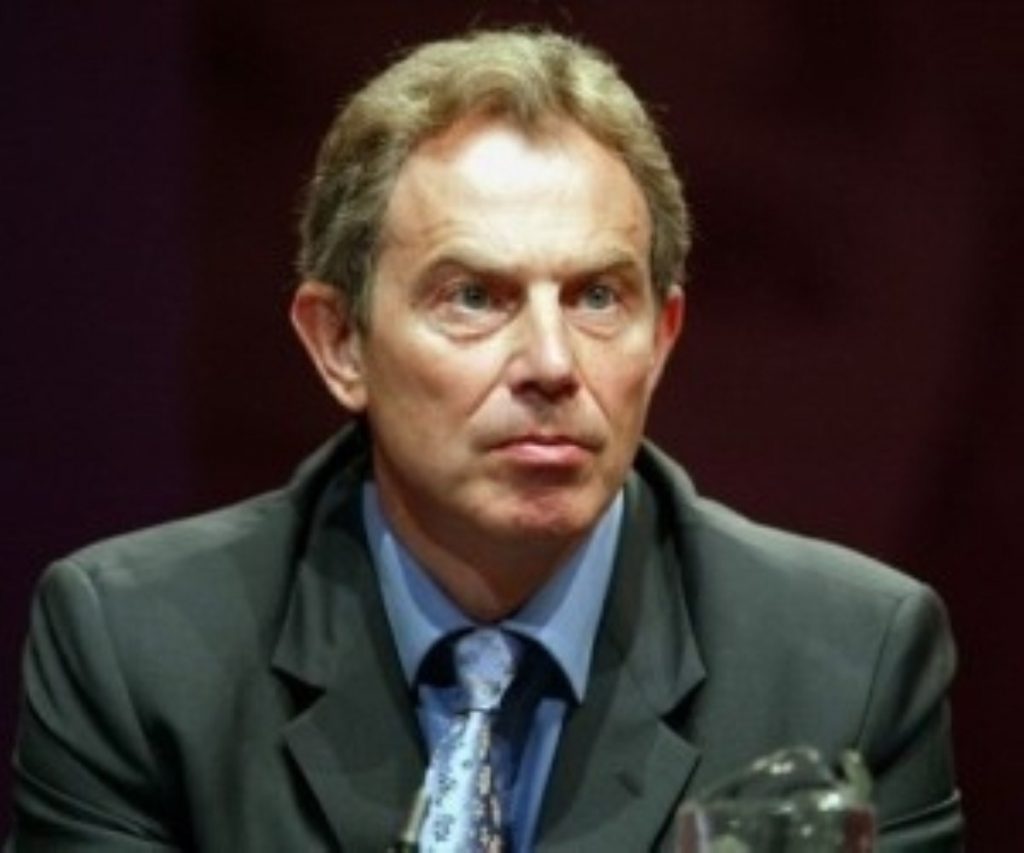Blair – time to make the case for Europe
The Prime Minister Tony Blair has insisted that now is the time “to make the argument” for Britain in Europe.
Speaking at a joint news conference with Chancellor Gordon Brown this lunchtime, Mr Blair insisted that membership of the single currency would benefit the UK in terms of lower transaction costs as well as the prospect of “locking in low long-term interest rates and entrenching British economic stability”.
He added that it was essential for the UK to face up to the reality of enlargement and be prepared for the prospect of the majority of countries within the European landmass adopting the euro.
However, the Prime Minister repeatedly stressed that the economic conditions had to be right before entry into the eurozone could be recommended to the British public.


Mr Blair’s comments come after the Chancellor delivered his long-awaited statement to the Commons yesterday in which he confirmed that key elements of the five economic tests on the viability of UK euro membership had not been met.
Insisting that the Labour leadership remained committed to euro entry in principle, Gordon Brown announced a series of ‘far reaching’ reforms designed to ensure further progress in meeting the convergence and flexibility criteria set by the Government six years ago.
And he confirmed that the the subject of UK convergence with the eurozone would be reviewed at the time of the 2004 budget.
Addressing journalists at Downing Street today, Mr Blair refused to be pinned down on the likelihood of a euro referendum taking place within the lifetime of this parliament, conceding only that it was “possible”.
There was “no point in trying to spell out the odds on it”, the PM maintained, but insisted that the Government had already “cleared away a lot of the obstacles” on the path to euro entry.
And in a sideswipe at the Conservative leadership, Mr Blair warned of what he claimed to be the disadvantages of staying out of the European project.
“It would be foolish to say that Britain is never going to join the single currency”, he maintained, adding: “For Britain to turn its back on Europe is a mistake of historic proportions”.
For its part, the Conservative front bench heatedly argues that its opposition to the euro does not equate to a lack of commitment to the European Union, and it flatly rejects claims that it would broadly welcome UK withdrawal from the EU.
Speaking at the same press conference, Chancellor Gordon Brown asserted that progress on UK convergence with the eurozone had been made since Labour came to office in 1997.
There remained a “realistic prospect of making progress over the next year”, he maintained.
Mr Brown also played down suggestions that in entering the eurozone the UK would risk closing down its trade links with countries outside of the EU.
“You cannot be an exclusive trade bloc”, the Chancellor contended, arguing that old concepts of “fortress Europe” had been abandoned among the majority of EU ministers, who were now moving towards a keen understanding of the benefits of “global Europe”.
In this way, long-standing British values of economic flexibility and free trade were “beginning to dominate in Europe”, he claimed.
Mr Brown’s comments come after he insisted that the operation of the housing market was key to ensuring that potential membership of the euro proved successful.
Over recent decades ‘most stop-go problems (in the British economy)…. have been led or influenced by the housing market’, the Chancellor told the Commons yesterday.
Tackling such concerns, Mr Brown expressed confidence that proposals to build on and extend present reforms for planning and supply would induce greater stability in the UK housing market
He also placed faith in an ongoing review into the current British system of house financing, cited by many commentators as a notable difference between UK and continental economies.
In a wide-ranging address, the Chancellor confirmed that he was planning to introduce the use of a new international index for inflation, which he said would bring the UK into line with the practice of most of the developed world.
And he suggested that British trade could increase within the eurozone ‘perhaps to the extent of 50% over 30 years’ should the UK join the euro.
Responding to the ‘not yet’ verdict delivered by the Chancellor yesterday, euro-sceptic voices welcomed the decision to delay.
George Eustice, director of the no campaign, said: ‘This is the right decision for Britain – the time is not right to join. The euro isn’t
working for those countries already inside the currency, with Germany on the brink of recession, unemployment rising and Eurozone growth half the level in Britain.’
However, Nigel Smith, the campaign’s chair, expressed concern at the measures towards convergence outlined by Gordon Brown.
“Public opinion will not be moved by a draft referendum bill. The reality is that the pro-euro campaign is far weaker now than it was in 1999. Public and business opposition has increased and the Labour movement is turning against it’, Mr Smith claimed.
And Bill Morris, the outgoing general secretary of the Transport and General Workers’ Union, said that the Chancellor was “absolutely right” to give primacy to Britain’s economic interests, but expressed concern at the decision to review the tests at the time of the next budget.
“It does not provide business with the certainty it needs to make investment decisions, and does not reassure British workers that their jobs are secure”, he maintained.
‘Today should have been a time for certainty, not just one of political hope. The Government should make the politically courageous decision by ruling out the referendum for the lifetime of this Parliament and give a clear priority to the reform of public services.’












